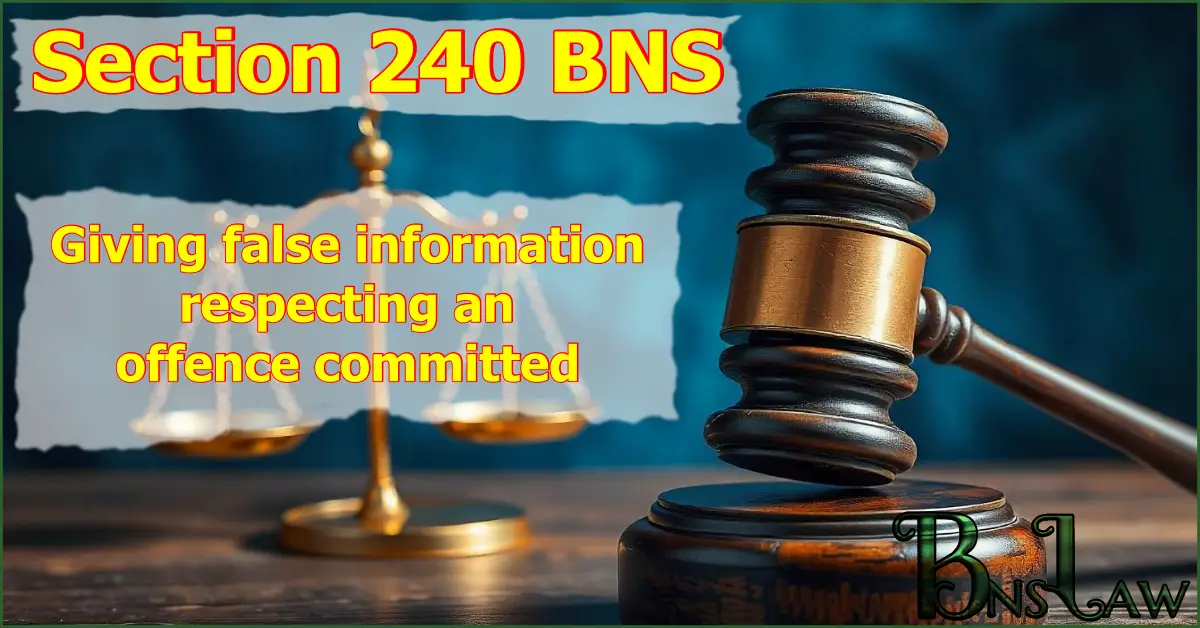Section 240 BNS | BNS 240
Whoever, knowing or having reason to believe that an offence has been committed, gives any information respecting that offence which he knows or believes to be false, shall be punished with imprisonment of either description for a term which may extend to two years, or with fine, or with both.
Explanation— In sections 238 and 239 and in this section the word “offence” includes any act committed at any place out of India, which, if committed in India, would be punishable under any of the following sections, namely, 103, 105, 307, sub-sections (2), (3) and (4) of section 309, sub-sections (2), (3), (4) and (5) of section 310, 311, 312, clauses (f) and (g) of section 326, sub-sections (4), (6), (7) and (8) of section 331, clauses (a) and (b) of section 332.
READ OTHER SECTIONS OF CHAPTER XIV — OF FALSE EVIDENCE AND OFFENCES AGAINST PUBLIC JUSTICE
FAQs of BNS Section 240
-
240 BNS punishment and fine
Punishment and fine under Section 240 of the BNS: Imprisonment for 2 years, or fine, or both.
-
240 BNS cognizable or not
The offence under Section 240 of the BNS is non-cognizable.
-
240 BNS bailable or not
The offence under Section 240 of the BNS is bailable.
-
240 BNS trial court
Offence specified in Section 240 of the BNS is triable by any Magistrate.
Important Points
- Cognizable Offences: These are offences where a police officer can arrest a person without a warrant.
- Non-Cognizable Offences: These are offences where a police officer cannot arrest a person without a warrant.
- Bailable Offences: These are offences where the accused can get bail from the police station itself. All bailable offences are listed in the First Schedule of the Bharatiya Nagarik Suraksha Sanhita (BNSS).
- Non-Bailable Offences: Offences in which bail is not granted directly from the police station but after hearing the case in the court, the judge decides when bail will be granted. All non-bailable offences are listed in the first schedule of the Bharatiya Nagarik Suraksha Sanhita (BNSS).
- In the above FAQ, “trial court” means the court that has jurisdiction to try the offence.
- In the above FAQ, the expression “Magistrate of the first class” and “Any Magistrate” does not include Executive Magistrates.
Read other Sections of the BNS
Reference Link: New Criminal Laws (BNS), Ministry of Home Affairs







